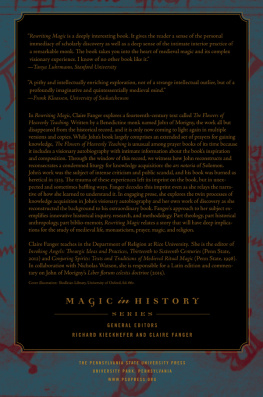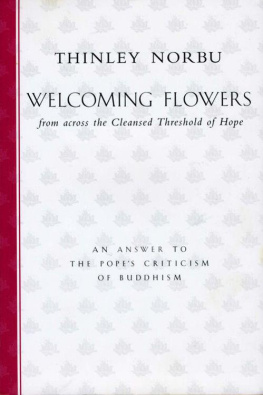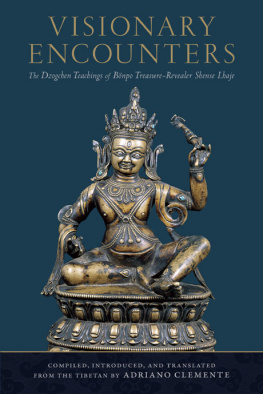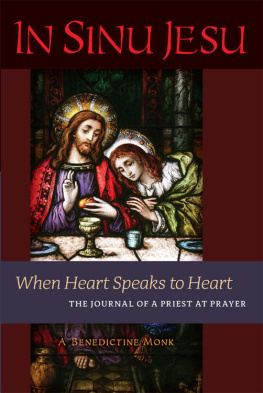Rewriting Magic
THE MAGIC IN HISTORY SERIES
FORBIDDEN RITES
A Necromancers Manual of the Fifteenth Century
Richard Kieckhefer
CONJURING SPIRITS
Texts and Traditions of Medieval Ritual Magic
Edited by Claire Fanger
RITUAL MAGIC
Elizabeth M. Butler
THE FORTUNES OF FAUST
Elizabeth M. Butler
THE BATHHOUSE AT MIDNIGHT
An Historical Survey of Magic and Divination in Russia
W. F. Ryan
SPIRITUAL AND DEMONIC MAGIC
From Ficino to Campanella
D. P. Walker
ICONS OF POWER
Ritual Practices in Late Antiquity
Naomi Janowitz
BATTLING DEMONS
Witchcraft, Heresy, and Reform in the Late Middle Ages
Michael D. Bailey
PRAYER, MAGIC, AND THE STARS IN THE ANCIENT AND LATE ANTIQUE WORLD
Edited by Scott Noegel, Joel Walker, and Brannon Wheeler
BINDING WORDS
Textual Amulets in the Middle Ages
Don C. Skemer
STRANGE REVELATIONS
Magic, Poison, and Sacrilege in Louis XIVs France
Lynn Wood Mollenauer
UNLOCKED BOOKS
Manuscripts of Learned Magic in the Medieval Libraries of Central Europe
Benedek Lng
ALCHEMICAL BELIEF
Occultism in the Religious Culture of Early Modern England
Bruce Janacek
INVOKING ANGELS
Theurgic Ideas and Practices, Thirteenth to Sixteenth Centuries
Edited by Claire Fanger
THE TRANSFORMATIONS OF MAGIC
Illicit Learned Magic in the Later Middle Ages and Renaissance
Frank Klaassen
MAGIC IN THE CLOISTER
Pious Motives, Illicit Interests, and Occult Approaches to the Medieval Universe
Sophie Page
The Magic in History series explores the role magic and the occult have played in European culture, religion, science, and politics. Titles in the series bring the resources of cultural, literary, and social history to bear on the history of the magic arts, and they contribute to an understanding of why the theory and practice of magic have elicited fascination at every level of European society. Volumes include both editions of important texts and significant new research in the field.
Rewriting Magic

An Exegesis of the Visionary Autobiography of a Fourteenth-Century French Monk
Claire Fanger
The Pennsylvania State University Press
University Park, Pennsylvania
of Rewriting Magic appeared in a preliminary form as Libri Nigromantici: The Good, the Bad, and the Ambiguous in John of Morignys Flowers of Heavenly Teaching.Magic, Ritual, and Witchcraft 7, no. 2 (2012): 16489. 2012 University of Pennsylvania Press.
The following extracts are reprinted with permission from:
Polity Press, excerpt from Pierre Bourdieu, Pascalian Meditations. This translation 2000, Polity Press.
Springer Science + Business Media, excerpt from Ludwig Wittgenstein, Philosophy: Sections 8693 (pp. 40535) of the so-called Big Typescript (Catalog number 213), trans. C. G. Luckhardt and M. A. E. Auel, Synthese 87 (1991): 322. This translation 1991 Kluwer Academic Publishers.
The C. S. Lewis Company Ltd., excerpt from The Silver Chair copyright C. S. Lewis Pte. Ltd. 1953.
Wiley Books, excerpt from Ludwig Wittgenstein, Philosophical Investigations, trans. G. E. M. Anscombe, P. M. S. Hacker, and Joachim Schulte, 4th ed., rev. Hacker and Schulte (Malden, Mass.: Wiley Blackwell, 2009). Copyright 1953,1958, 2001 by Blackwell Publishing Ltd.
Random House, excerpt from Possession: A Romance by A. S. Byatt, copyright 1991 by A. S. Byatt. Used by permission of Random House, an imprint and division of Penguin Random House LLC. All rights reserved. Any third party use of this material, outside of this publication, is prohibited. interested parties must apply directly to Penguin Random House LLC for permission.
Library of Congress
Cataloging-in-Publication Data
Fanger, Claire, author.
Rewriting magic : an exegesis of the visionary autobiography of a fourteenth-century French monk / Claire Fanger.
pagescm (Magic in history)
Summary: Examines the text and background of The Flowers of Heavenly Teaching, an autobiography by the fourteenth-century Benedictine monk John of Morigny. Explores how the author negotiated the categories of magic and heresy in relation to ChristianityProvided by publisher.
Includes bibliographical references and index.
ISBN 978-0-271-06650-9 (cloth : alk. paper)
1. John, of Morigny, active 13th century14th century. Liber florum celestis doctrine.
2. MagicReligious aspectsChristianity.
3. Christian heresies.
I. Title. II. Series: Magic in history.
BR 115. M 25 F 36 2015
271'.102dc23 2014046791
Copyright 2015
The Pennsylvania State University
All rights reserved
Printed in the United States of America
Published by
The Pennsylvania State University Press,
University Park, PA 168021003
The Pennsylvania State University Press
is a member of the
Association of American University Presses.
It is the policy of The Pennsylvania State University Press to
use acid-free paper. Publications on uncoated stock satisfy
the minimum requirements of American National Standard
for Information SciencesPermanence of Paper for
Printed Library Material, ansi z39.481992.
CONTENTS
Part 1:
Foundation
Part 2:
Restoration
As I write this, the Latin edition of John of Morignys Liber florum, which I have edited with Nicholas Watson, is in press at the Pontifical Institute of Mediaeval Studies and scheduled for release in the summer of 2015. This edition will be an important resource for all serious readers of Rewriting Magic, since it makes available not only Johns original Latin text in both its versions, but also more of the background data on which my readings and interpretations here are based. We have a collaborative English translation in progress that we hope will shortly make this remarkable work still more accessible to a broad audience.
Over the two decades involved in the making of our edition, manuscript discoveries have continued to yield new information that has gradually reconfigured our picture of John and his world. Inevitably in this process some of what we described or conjectured in our earlier publications has become outdated. In order to ease readers who are familiar with our old work into the purview of the more recent hypotheses and better readings represented by the new edition, I take this opportunity to correct a few points where names, locations, facts, or probabilities have shifted from our earlier projections.
In this book, as in our edition, following our sense of the most authoritative manuscripts of Johns text, I adopt Burgeta (Bridget) as the name of Johns sister, not Gurgeta (Georgette) as she appeared in our 2001 edition of the Liber visionum.
Liber visionum itself is now obsolete as a title for the whole text; we retain its more limited use as a title for the first of the texts three books, the visionary autobiography (which we edited as the Prologue in 2001). In the Old Compilation, John lists twelve titles for the work, one of which was in fact Liber visionum; however, by the end of the New Compilation, he explicitly wants Liber florum celestis doctrine











